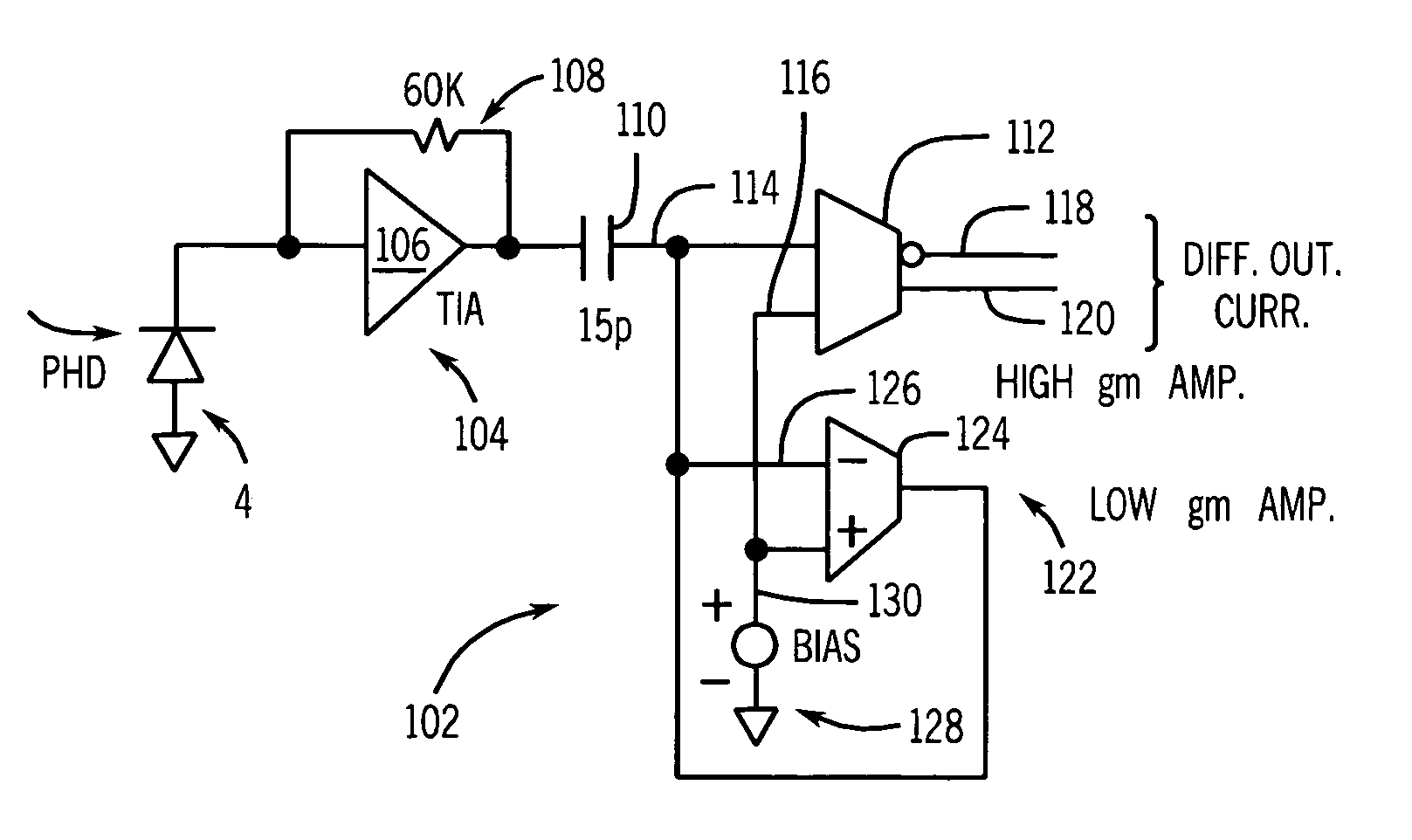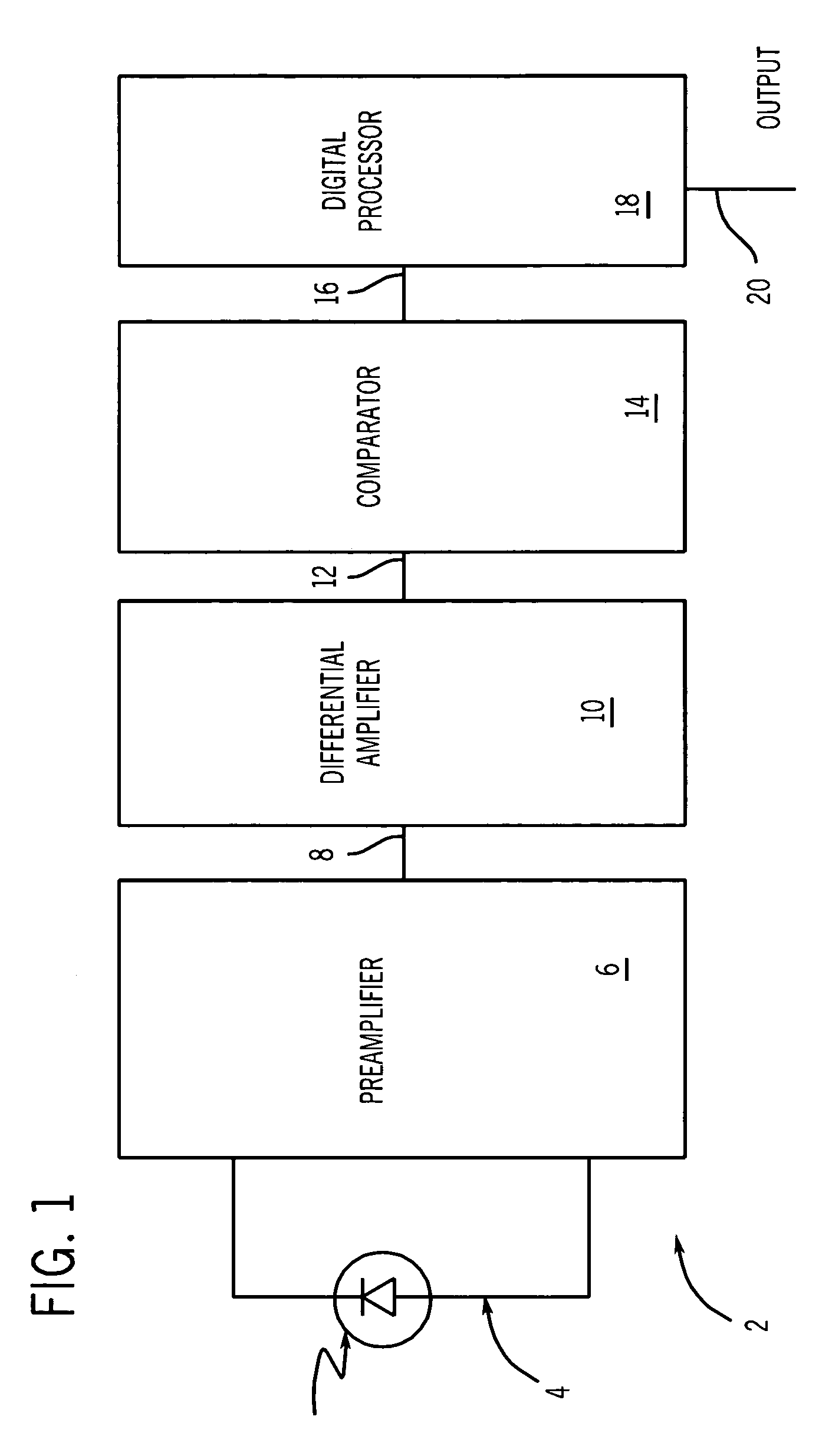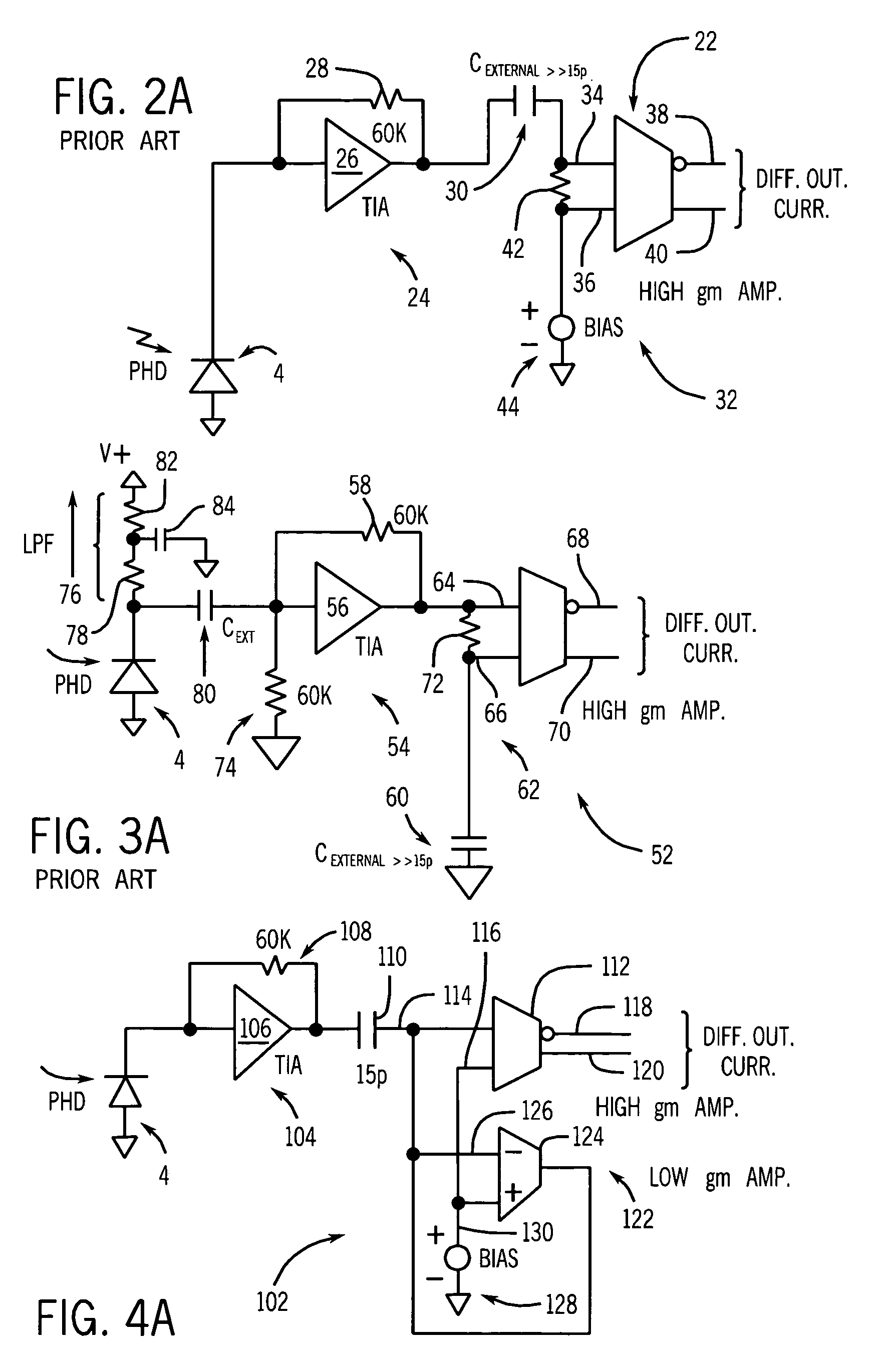Reduced-size sensor circuit
a sensor circuit and sensor technology, applied in the field of sensors, can solve the problems of reducing the size of the overall electrical component, limiting the benefits achieved through the use of integrated circuits in terms of cost and size reduction, and using electrical circuit devices that cannot be easily implemented on integrated circuits, so as to reduce the size and/or cost of conventional sensors, reduce the number of discrete devices used, and reduce the size and/or cos
- Summary
- Abstract
- Description
- Claims
- Application Information
AI Technical Summary
Benefits of technology
Problems solved by technology
Method used
Image
Examples
Embodiment Construction
[0023]Referring to FIG. 1, a simplified block diagram of an exemplary sensor, in this case shown to be a photosensor 2, is shown. The photosensor 2 includes a sensing device 4 that in this case is a photodiode coupled to an improved preamplifier or front end amplification section 6, which in turn outputs a signal 8 (or possibly more than one signal) to a differential amplifier 10. In the present embodiment, the differential amplifier 10 outputs an additional signal (or signals) 12 to a comparator 14, which in turn outputs a further signal (or signals) 16 to a digital processor 18. The digital processor 18 then is capable of providing an output signal 20 (or potentially more than one output signal) to another device or other devices, for example, an output device such as an LCD display, a computer, the internet or some other device or system that can utilize the information output by the digital processor 18.
[0024]The preamplifier 6 serves to take a signal or signals from the photodi...
PUM
 Login to View More
Login to View More Abstract
Description
Claims
Application Information
 Login to View More
Login to View More - R&D
- Intellectual Property
- Life Sciences
- Materials
- Tech Scout
- Unparalleled Data Quality
- Higher Quality Content
- 60% Fewer Hallucinations
Browse by: Latest US Patents, China's latest patents, Technical Efficacy Thesaurus, Application Domain, Technology Topic, Popular Technical Reports.
© 2025 PatSnap. All rights reserved.Legal|Privacy policy|Modern Slavery Act Transparency Statement|Sitemap|About US| Contact US: help@patsnap.com



